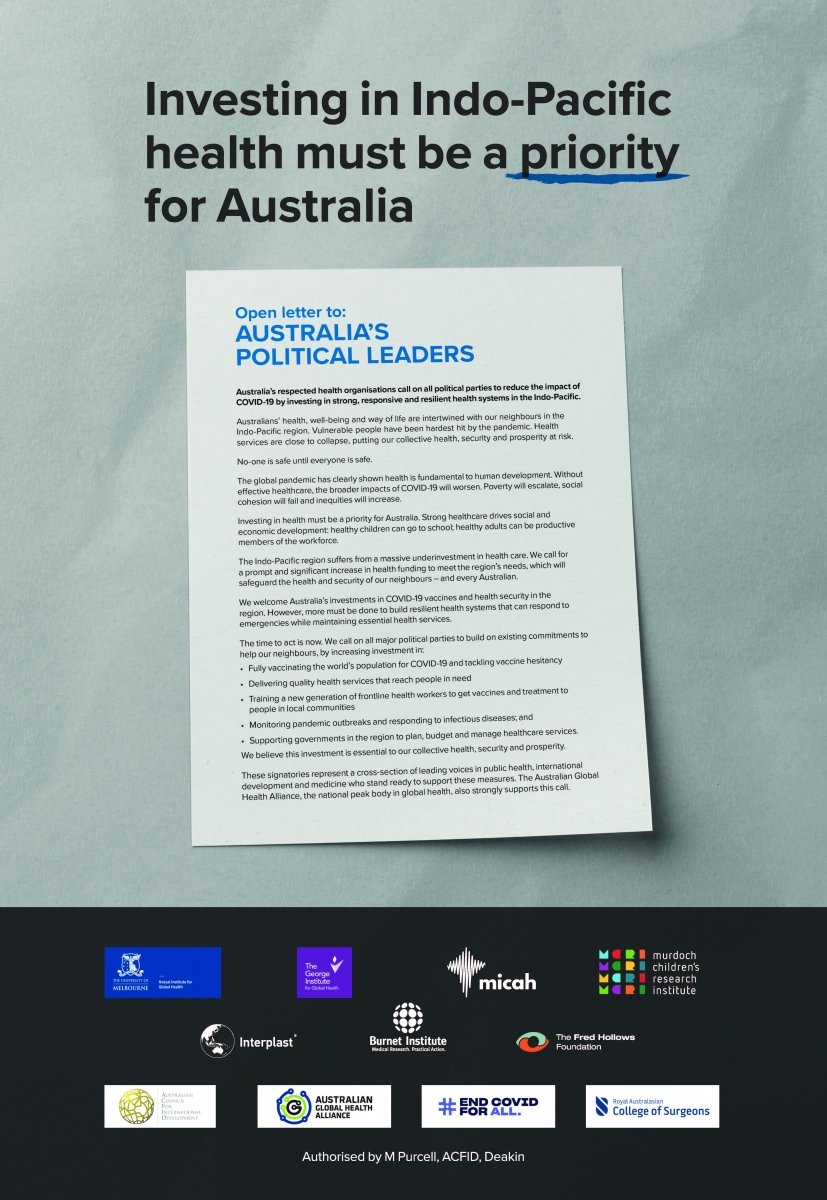As the Indo-Pacific region looks towards a pathway out of the COVID-19 pandemic and its health, financial and social consequences, ACFID and its members have released a policy brief outlining a health strategy that would pave the way for stronger regional health systems.
The document, ‘Strong, responsive and resilient health systems in the Indo-Pacific’ was a collaboration between ACFID, The Fred Hollows Foundation and Micah Australia, backed by research reports by University of Sydney and UNSW.
Its overarching message is a call for working towards sustainable and locally-led health systems.
An open letter published today in The Australian newspaper set out the rationale for such a health policy, signed by a number of universities and NGOs working in the health sector. These included:
- The University of Sydney
- Australian National University
- UNSW
- Royal Australian College of Surgeons
- The Fred Hollows Foundation
- #End Covid For All
- The George Institute
- Burnet Institute
It said: “Australians’ health, well-being and way of life are intertwined with our neighbours in the Indo-Pacific. Marginalised people have been hardest hit by the pandemic. Health services are close to collapse, putting our collective health, security and prosperity at risk.”
The open letter is a vivid call to action by the health development sector for Australia to play a greater role in health recovery and strengthening health systems in the region.
Under COVID-19, development outcomes have been set back by a decade, and poverty is on the rise for the first time in 20 years. The health strategy sets out ways that health systems in the Indo-Pacific region can be improved to alleviate future pandemic impacts.
Most crucially, the plan involved a focus on sustainable, locally-led health systems, and the widening of local health workforces. More doctors, nurses and other health professionals at the local level means better health outcomes for their own communities.
The full health plan can be read here.
Adding weight and depth to the call to action, two research reports were launched which underpin the policy brief by outlining in detail how to reduce the risk of future major health events like pandemics and build resilient health systems in the Indo-Pacific.
The reports, led by the University of Sydney and UNSW Sydney, were commissioned by ACFID and the Fred Hollows Foundation respectively, and offer a roadmap for how the Indo-Pacific can move forward, drawing on knowledge gained during the pandemic to build more resilience into their health systems.
Both reports present data on opportunities for Australia to demonstrate leadership in global health and development in the region,and suggest that investing in health workforce and health data information systems are key.
The reports can be accessed here via The University of Sydney.
ENDS
For more information or to arrange interviews please call 0401 721 064 or email [email protected].









